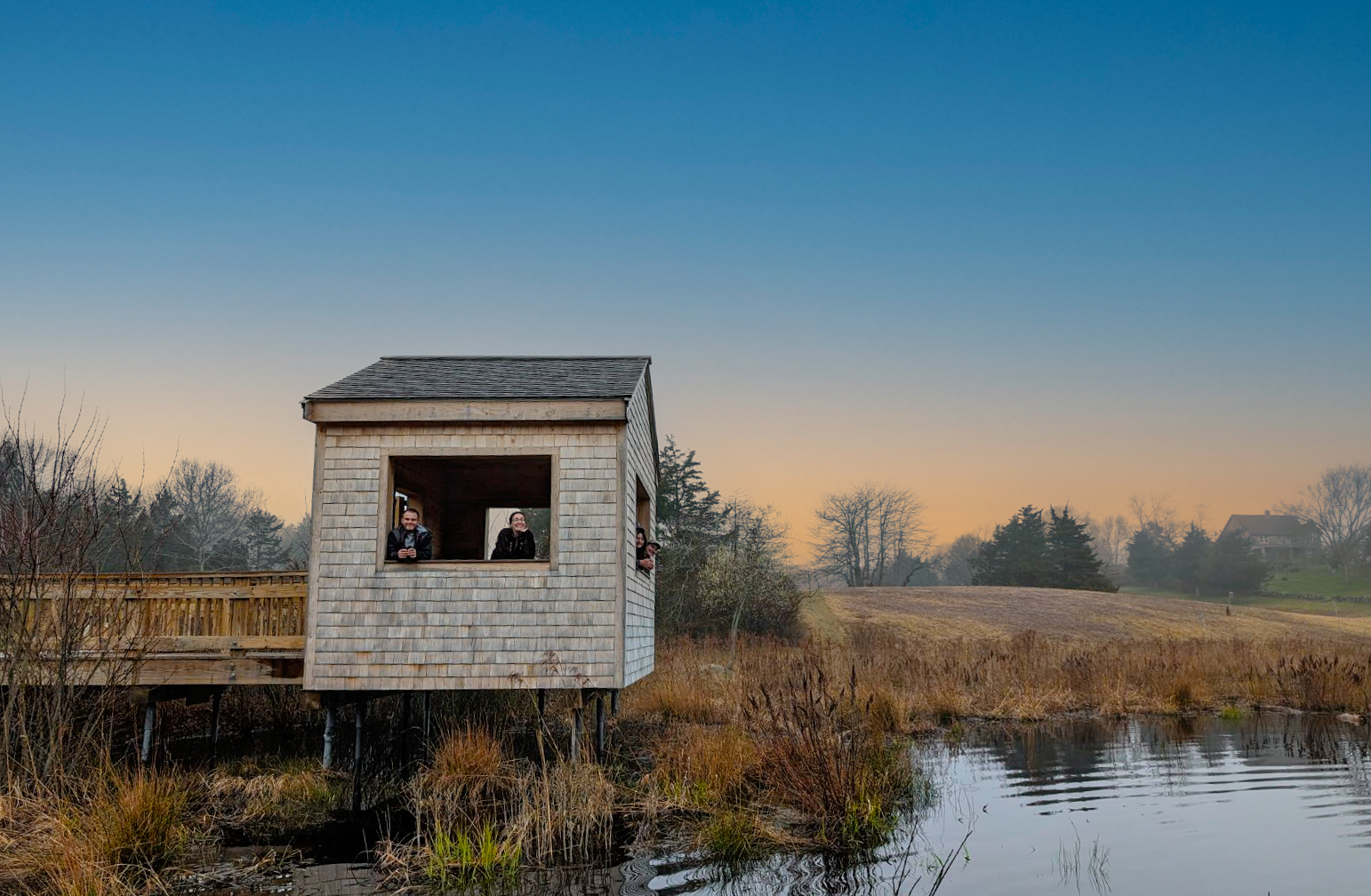Teachers welcomed Manomet staff to three southeastern Massachusetts school districts this month to help monitor biological climate change indicators as part of the new Climate Lab program.
The program teaches educators how their students can collect data on biological indicators of climate change at their own schools.
Middle school math and science teachers from three Massachusetts school districts – Duxbury, Sandwich and Wareham – are participating in the pilot. In October, Manomet held a workshop for the teachers where they learned to measure biological climate change indicators including average percent canopy, shrub and herb cover, leaf development, tree height and tree DBH (diameter breast height).
The teachers brought these methods back with them to begin setting up their own ‘climate labs’ on school grounds where their students will collect standardized data each year. To date, 13 teachers received training and are now piloting the program in six schools – engaging almost 500 students. During the pilot stage Manomet scientists are visiting schools to ensure that monitoring is established correctly.
“Last week, we visited schools in the three Massachusetts districts participating in the pilot,” said Trevor Lloyd-Evans, who is leading Manomet’s involvement in the program. “We helped teachers select on-site transects and choose plant species and individual plants to monitor.”
Taking measurements in the same places at the same times each year, students will produce a standardized dataset on the local impacts of climate change.
Climate Lab is a partnership between Manomet, the land conservation organization Wildlands Trust and TERC, a Cambridge-based academic non-profit. TERC is developing the program’s curriculum, while Manomet is providing scientific expertise and training and making its long-term bird migration dataset available to students.
“The students will be able to compare their data on when plants are leafing out with median spring arrival dates of common bird species,” Lloyd-Evans said. “They will be using their own data to make connections between the timing of plant leaf out, insect hatching and when bird species are arriving back in the northeast in spring to determine how local species are being affected by climate change.”
The program’s next steps include recruiting additional schools for participation in the 2014-2015 school year, modifying the curriculum with help from the teachers participating in the pilot and taking the program to national scale within three years.
“We’re doing the measurements that may actually end up showing the students – or the community – that there is this change happening,” said Peter Trimble, a teacher at the Forestdale School in Sandwich, Massachusetts, in a recent NPR interview. “The proof is in the pudding.”
Listen to the hour-long radio program on the Cape and Islands NPR station, which features the Climate Lab as an example of inquiry-based learning and STEM education, at http://capeandislands.org/post/embracing-science-and-technology-learning-style.
Learn more about the Climate Lab program at https://www.manomet.org/program/connecting-nature/climate-lab.
– Haley Jordan





 Back to all
Back to all